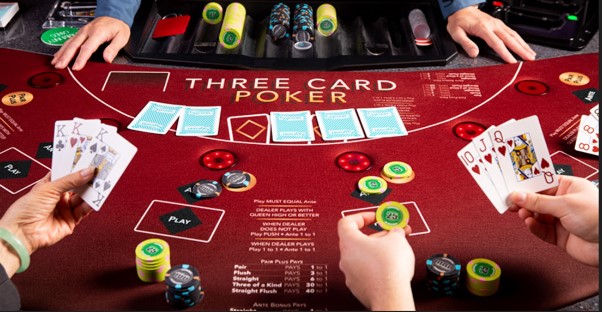Introduction:
Casinos have long held a captivating allure, beckoning individuals into a world of excitement, chance, and, for some, life-pagcor online casino wins. These establishments have become cultural icons, synonymous with glitz, glamour, and the potential for both fortune and folly. However, beyond the flashing lights and ringing slot machines lies a complex ecosystem shaped by psychology, economics, and societal attitudes towards risk and reward. In this article, we delve into the multifaceted nature of the casino experience, examining its appeal, impact, and the realities that lie beneath the surface.
The Allure of the Casino:
Step inside a casino, and you’re immediately enveloped in an atmosphere designed to entice and engage. The bright lights, rhythmic sounds, and energetic ambiance create a sensory overload that captivates the senses. For many, the allure lies in the promise of excitement and the potential for financial gain. Casinos offer a tantalizing array of games, from classic table games like blackjack and roulette to modern video slots with immersive graphics and bonus features. Each game presents a unique opportunity for players to test their luck and skill against the house, fostering a sense of anticipation and adrenaline.
Moreover, casinos are often associated with luxury and indulgence, offering amenities such as fine dining, entertainment venues, and lavish accommodations. These features contribute to the allure of the casino experience, transforming it into a destination for leisure and entertainment.
Psychology of Gambling:
At the heart of the casino experience lies the psychology of gambling. Human beings are inherently drawn to uncertainty and risk, and casinos capitalize on this inclination by providing a controlled environment where individuals can wager money in pursuit of a reward. The thrill of gambling is rooted in the interplay between chance and skill, with players constantly weighing the odds and making split-second decisions that can impact the outcome of a game.
Psychological factors such as cognitive biases, emotional arousal, and reinforcement play a significant role in shaping gambling behavior. The near-misses, intermittent rewards, and illusions of control that characterize many casino games can create a sense of excitement and compel players to continue playing, even in the face of mounting losses.
Impact on Society:
While casinos offer entertainment and excitement for many, they also have a profound impact on individuals and communities. Problem gambling, characterized by compulsive behavior and an inability to control gambling impulses, can lead to financial ruin, strained relationships, and mental health issues. Studies have shown that problem gambling disproportionately affects vulnerable populations, including low-income individuals, minorities, and those with pre-existing mental health conditions.
Furthermore, the proliferation of casinos can have broader social and economic consequences for communities. While casinos may stimulate economic growth and create job opportunities in the short term, they can also lead to social problems such as crime, addiction, and increased rates of bankruptcy. Moreover, the revenue generated by casinos often comes at the expense of local businesses and other industries, leading to concerns about economic inequality and dependence on gambling revenues.
Regulation and Responsible Gaming:
In response to these concerns, regulatory agencies and industry stakeholders have implemented measures to promote responsible gaming and mitigate the negative impacts of casinos. These efforts include initiatives such as self-exclusion programs, responsible gaming education, and the implementation of strict age and identity verification measures to prevent underage gambling.
Furthermore, many casinos have adopted policies to identify and assist individuals who may be experiencing gambling-related harm, such as providing access to counseling services and support groups. However, the effectiveness of these measures remains a subject of debate, and critics argue that more stringent regulations and oversight are needed to address the root causes of problem gambling.
Conclusion:
The allure of the casino experience is undeniable, offering a blend of excitement, entertainment, and the potential for financial gain. However, behind the glitz and glamour lies a complex ecosystem shaped by psychology, economics, and societal attitudes towards risk and reward. While casinos provide a form of entertainment for millions of people around the world, they also pose significant risks to individuals and communities, particularly those already vulnerable to addiction and financial hardship. As the debate over the societal impact of casinos continues, it is essential to strike a balance between promoting responsible gaming and addressing the broader social and economic consequences of gambling. Only by doing so can we ensure that the casino experience remains a source of entertainment rather than a cause of harm.
